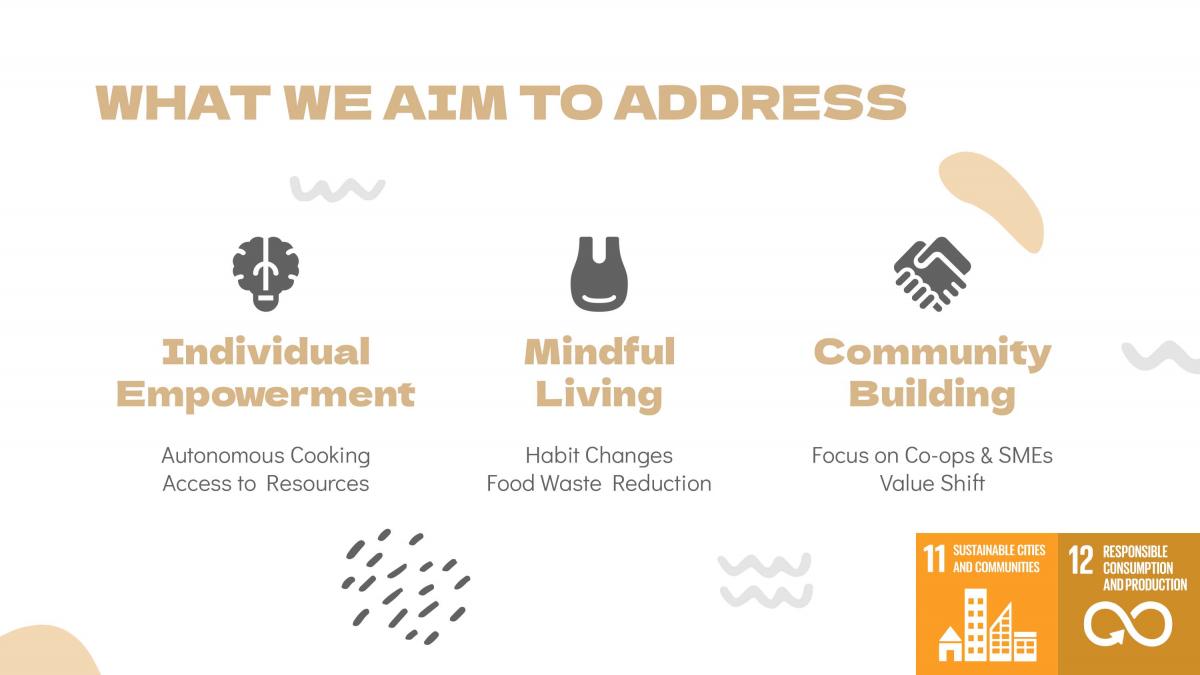“Realizing you can have an impact even though you’re ‘just a student’ was huge,” said UBC student Hypatia Behar-Gryl, 21. “I learned that we can absolutely come up with big ideas to solve these huge problems we have today if we put our minds together, working from different cultures and backgrounds.”
Hypatia was on the winning team of best overall project at last summer’s virtual Network for Intercultural Competence and Entrepreneurship (NICE) program. The University of Edinburgh invited UBC to participate in NICE under the banner of the Global Virtual Classrooms initiative. UBC signed up 10 students to take part in the fully online four-month program with others from around the world working in multi-disciplinary, cross-institutional teams on UN Sustainable Development Goals. The task was to develop a project based on a global challenge.
Hypatia focused on the future of food and its origins alongside graduate students from Sweden, Scotland, Turkey, Japan and Spain. Her team's Root to Shoot project addressed individual empowerment, mindful living and community building—with autonomous cooking and food waste reduction through habit changes and value shifts. The aim was to show that people can take meaningful steps to improve community cooperation and self-dependency to reduce overconsumption at the individual level.
The project revolved around a website on local zero-waste resources, with blog articles on topics such as how to start a zero-waste journey, as well as events organized in collaboration with community centres. Modeled as an Edinburgh non-profit, the project included a paid, low-cost option for DIY Boxes: customers could order a food box containing a recipe, ingredients and information, encouraging people to try making staples such as bread at home instead of buying at the store.
The group tapped each other's strengths and backgrounds: Hypatia's business experience along with Eda Inal's interpersonal skills and local network connections, Miguel Sillero Romero's writing prowess, and Yuichi Tsuchibuchi's and Chia-Wen Yang's background in sustainability science.
“Collaborating was much easier than I expected,” Hypatia said. “Intercultural relations can look really complicated, but we ended up really well matched—and we’re still in touch. We were able to talk very openly and respectively about our cultures, and that doesn’t mean sacrificing our own cultural identity. This is the kind of experience we all need to realize our impact; to realize our potential as changemakers.”
Find out more about UBC’s Global Virtual Classrooms, an initiative of the Office of the Vice-Provost International and partners worldwide.

Hypatia Behar-Gryl's team project targeted three aspects aligned with UN Sustainable Development Goals 11 and 12. Originally from France, Hypatia grew up in Quebec. She is a third-year commerce major at UBC’s Sauder School of Business. After graduation, Hypatia is setting her sights on corporate law and integrating equity, diversity and inclusion, along with sustainability and social responsibility, into business culture (photo: Root to Shoot team)
